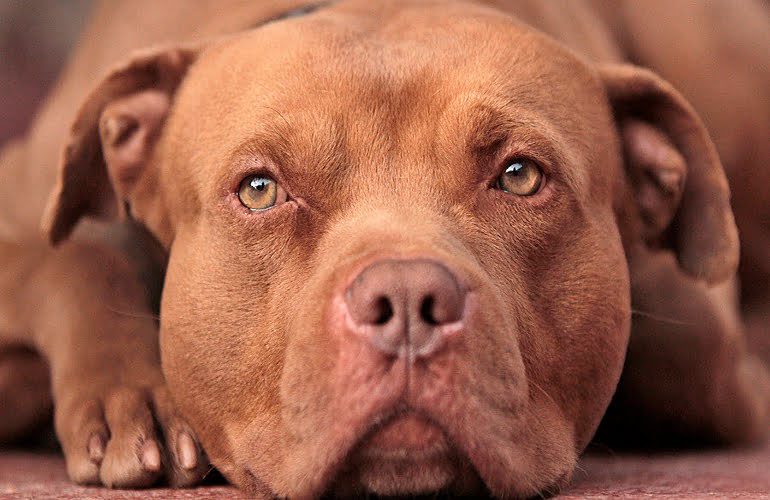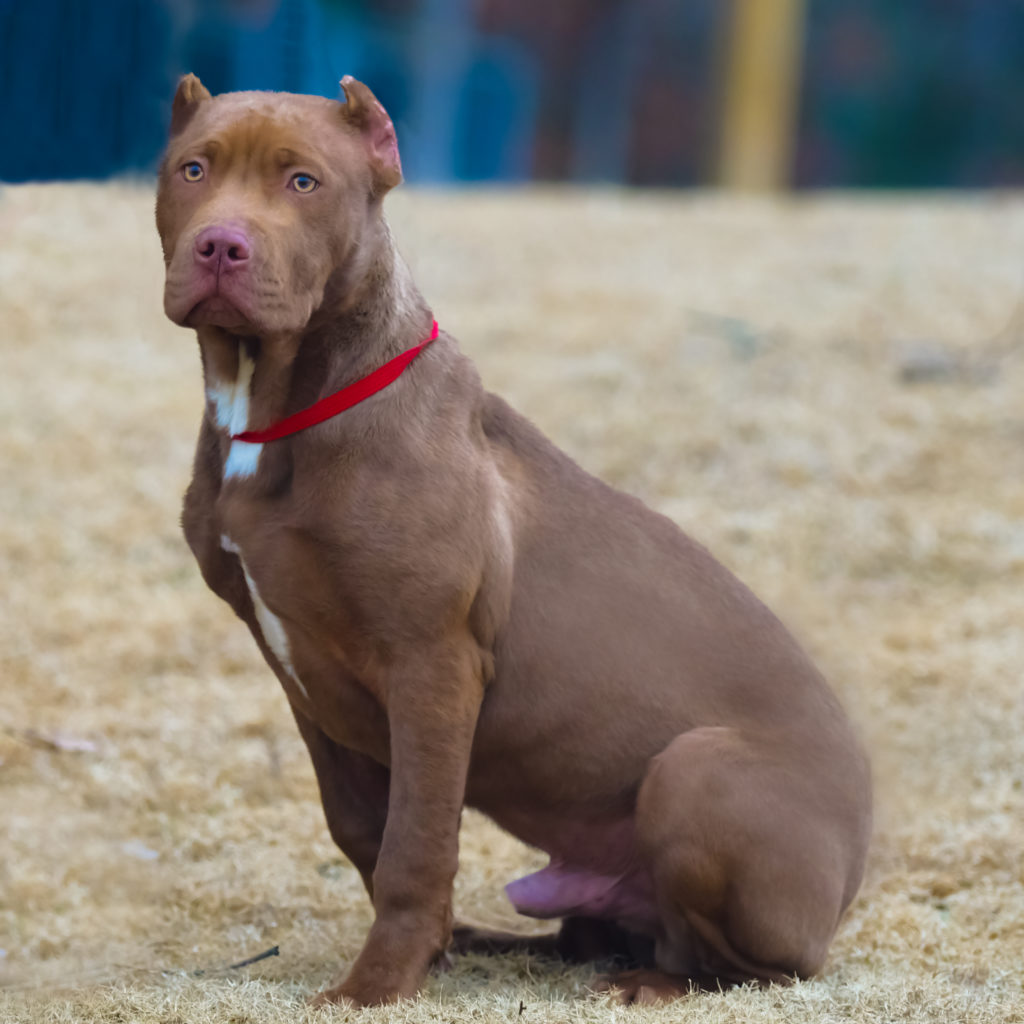

Pitbulls are active dogs and require high-quality dog food that is complete and balanced. They do better as a single dog in the home unless raised with another dog as a puppy. They have a high prey drive and may not realize the other animal is part of the family. Unfortunately, Pitbulls do not typically get along well with other dogs or pets. Does This Breed Get Along With Other Pets? They will, however, protect their human families with their lives. However, their muscular and intimidating physique will likely discourage someone from messing around on your property. They will alert you to someone being on your property, but they will want to meet the person rather than attack. They love people and may not have the ability to differentiate an intruder from someone visiting. Pitbulls make mediocre watchdogs-they don’t bark much, and they will likely not bark at an intruder. Pitbulls love to play with children, but sometimes, they are unaware of their own strength.

Given a Pitbull’s size, children should be supervised while playing with a Pitbull or any medium to large breed dog, as a child can accidentally get knocked over. Any dog breed can grow aggressive with improper training and abuse, and the Pitbull is no different. They do well with children and are big goofballs. In reality, these dogs make excellent family companions and are loyal to their humans. Yes! Sadly, Pitbulls often receive an unfair, bad reputation due to irresponsible owners or illegal dog fighting practices. Image Credit: Diego Thomazini, Shutterstock Are These Dogs Good for Families? 👪 If you have to leave your Pitbull for a long period, exercise him beforehand so he’s tired and not likely to miss you as much or get into mischief while you’re away. One thing to know about Pitbulls is they don’t do well being left alone for long periods and are prone to separation anxiety. Pitbulls can have a stubborn streak, making consistent training vital for a desirable outcome. They are easy to train and take great delight in participating in any activities with the family. They tend to form strong bonds with members of the household, and they love being around their humans. Pitbulls are intelligent, loving, affectionate, and eager to please. Temperament & Intelligence of the Blue Nose Pitbull Early socialization is key with any puppy, regardless of breed, as this will shape their temperament as they mature.

Expose them to people, places, sights, and sounds of other animals, and most importantly, ensure the experience is a positive one. Given their energetic nature, you’ll want to socialize your Blue Nose Pitbull early on, even as early as 7 to 16 weeks of age. Pitbull puppies are energetic and playful. If you do find one in a shelter, you’ll pay much less than you would from a breeder. Unless the dog is a service dog, some rental properties ban Pitties on the property, which forces owners to give them up. You may find a Blue Nose Pitbull in a shelter, as these dogs are often surrendered due to inexperienced owners or, again, due to their bad reputation. Given their rarity, you’ll likely acquire a Blue Nose Pitbull through a breeder, and it takes two blue-nosed parents with the recessive gene to produce a Blue Nose Pit. Typically, you can expect to pay anywhere from $750 to $2,000 for a Blue Nose Pitbull. No matter the breed, it’s important to socialize your dog and expose them to lots of different situations.īlue Nose Pitbull Puppies Image Credit: Diego Thomazini, Shutterstockīlue Nose Pitbull puppies may be hard to find due to their rarity, and they may cost more compared to other Pitbull puppies. More social dogs have a tendency to run up to strangers for pets and scratches, while less social dogs shy away and are more cautious, even potentially aggressive. Some dog breeds are more social than others, both towards humans and other dogs.


 0 kommentar(er)
0 kommentar(er)
